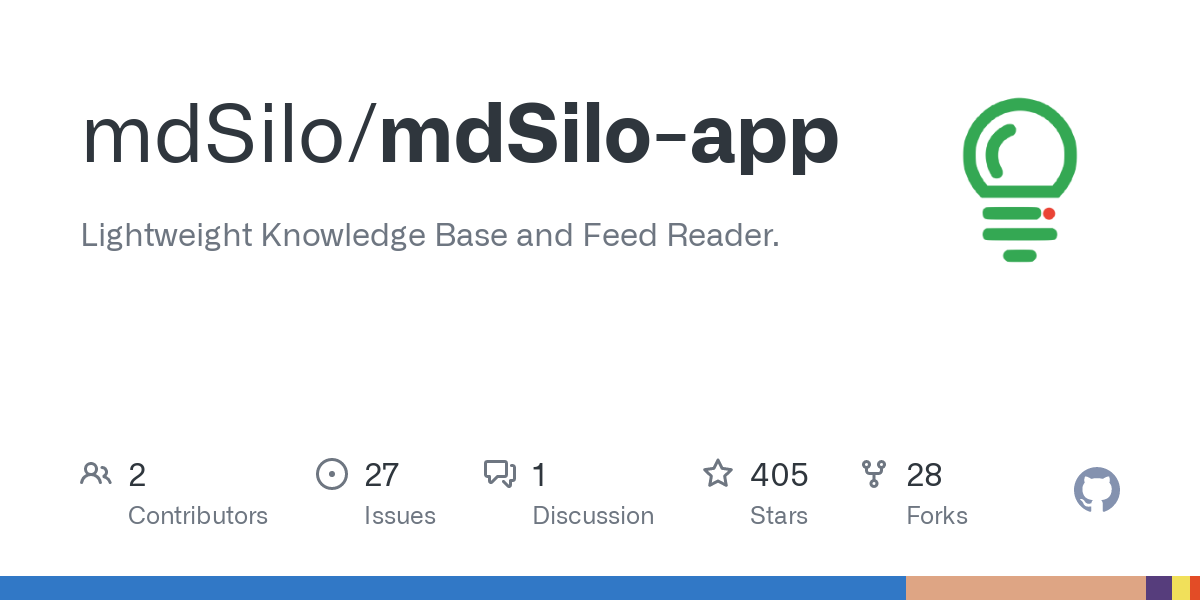- 14 Posts
- 13 Comments
deleted by creator

 0·4 months ago
0·4 months agodeleted by creator

 1·8 months ago
1·8 months agoTo index the contents of the drives, you can redirect the output of the find command to a file. For example,
find /path/to/your/drive -type f > drive_index.txtwill create a file nameddrive_index.txtcontaining a list of all the files in the drive.Then place all the file list in the same folder and grep that folder to find which drive contains the file.
deleted by creator
deleted by creator
deleted by creator

 66·9 months ago
66·9 months agodeleted by creator
deleted by creator
Look for AppStream metadata files like .desktop and .metainfo.xml. Presence of these suggests the package provides a graphical application.
I want to check all the packages in the Arch/AUR repositories, not just installed packages.
To get a list of all installed Arch/AUR packages that aren’t libraries or dependencies, i.e., they aren’t required by any other packages, you can use the
pacmancommand with the-Qentflag. This will list all explicitly installed native packages that are not direct or optional dependencies:pacman -QentHowever, this command will only list packages from the official repositories and not the AUR packages. To get a list of all installed AUR packages, you can use the
pacman -Qmqcommand:pacman -QmqTo filter out AUR packages that are not required by any other packages, you can combine the output of the above commands with some additional scripting. Here’s an example of how you can achieve this:
comm -23 <(pacman -Qmq | sort) <(pacman -Qqg base | sort -u)This command will list all installed AUR packages that are not required by any other packages. Note that this command assumes that you have the
commutility installed on your system. If you don’t have it, you can install it by installing thecoreutilspackage:sudo pacman -S coreutilsKeep in mind that this approach might not be perfect, as it may still include some packages that are indirectly required by other packages. However, it should give you a good starting point for identifying packages that are not libraries or dependencies.
deleted by creator

 1·9 months ago
1·9 months agodeleted by creator

 0·10 months ago
0·10 months agodeleted by creator
Filetags: Filetags is another tag-based file manager for Linux that allows you to manage simple tags within file names. It is a Python-based tool that provides support for controlled vocabularies. When invoked for interactive tagging, it looks for files named .filetags in the current working directory and its parent directories as well. The first file of this name found is read in. Each line represents one tag. Those tags are used for tag completion. With tags within .filetags, you don’t have to type the same tags over and over again.
Tocc: Tocc is a tag-based file management system for Linux. It provides a more flexible way of classifying files than traditional file systems based on a tree of files and directories. Tocc includes a tag-based file system called Toccfs, which turns directories into tags and searches your files for you. The goal of Tocc is to provide a better system for classifying files, which is more flexible than classic file systems based on a tree of files and directories. Tocc is free software and is released under the terms of the GNU General Public License version 3.
Supertag: Supertag is a tag-based filesystem written in Rust for Linux and macOS. It provides a tag-based view of your files by removing the distinction between directories and tags. Supertag is still in development and may not be suitable for all use cases.











deleted by creator